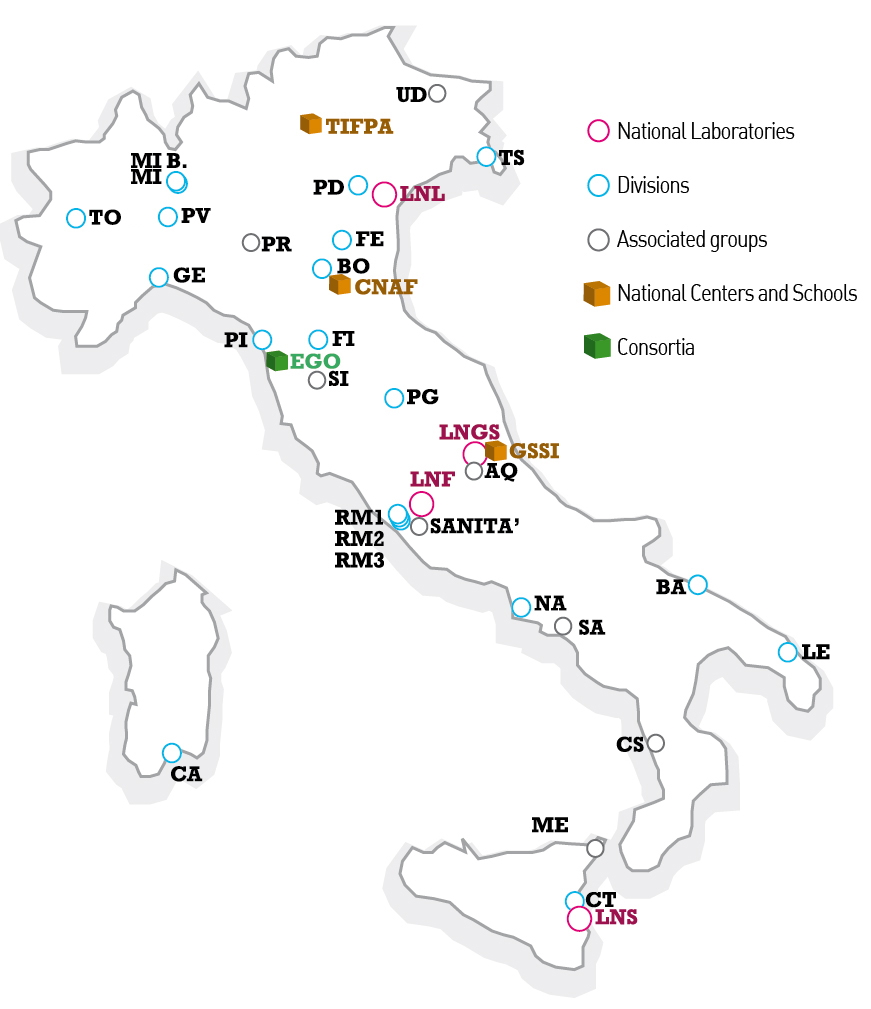Abstract
The main interest of our research group is the study of the non-perturbative features of strongly interacting gauge theories, and most notably of Quantum Chromodynamics (QCD). Non-perturbative approaches are indeed required to improve our knowledge of fundamental topics such as the vacuum structure and the finite temperature and density behavior of QCD, topics in which significant advances would not only be of fundamental theoretical interest, but also of direct experimental relevance e.g. for the physics of heavy ion collisions.
Subjects that have been traditionally investigated by our research group are the confinement mechanism and related topics (e.g. color flux-tubes), the dependence of the vacuum (or free) energy on the topological theta-angle and its implication for some models of beyond the standard model physics (axions), the finite temperature and density phase diagram of QCD and how it changes in the presence of an external magnetic or chromomagnetic field. To pursue these investigations two main strategies can be adopted: an effective field theory approach or first-principle Monte Carlo simulations carried out by using the lattice discretization of QCD. These simulations require huge computational efforts, and our group has a longstanding experience of development and optimization of codes targeted for state-of-the-art HPC supercomputing resources.
While results of direct phenomenological relevance can be achieved only by studying QCD at the physical point, fundamental insights can be obtained also by investigating simpler models sharing with QCD some specific features, like two-dimensional sigma models, effective spin or Polyakov loop models, Yang-Mills (pure glue) theories, and QCD with non-physical quark masses or with imaginary chemical potential. The study of these models helps to develop an intuition (and sometimes also a semi-quantitative understanding) of some general features of strongly interacting gauge theories, and it is also very useful to benchmark new algorithms and computational techniques (including quantum computing) in a simpler setting.
